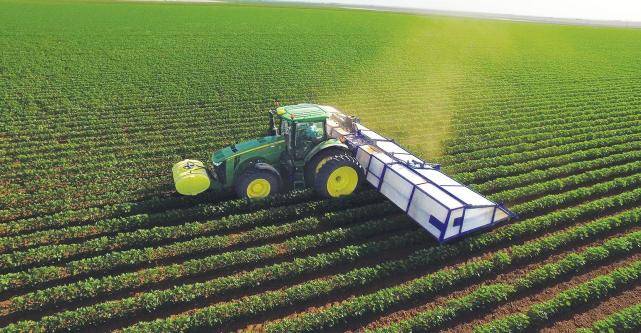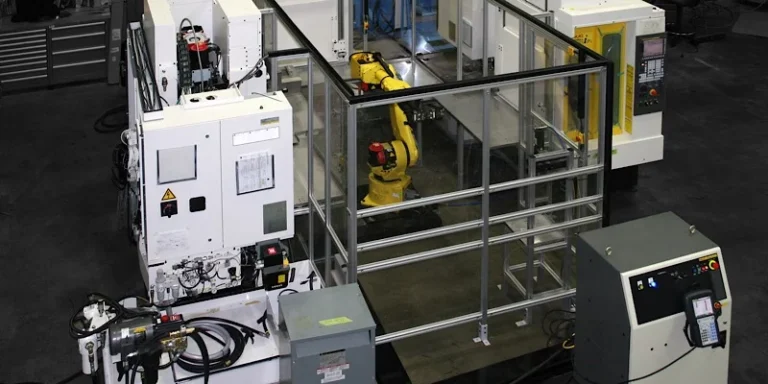The agricultural sector leverages Computer Numerical Control (CNC) machining for precision manufacturing of parts. This advanced technology enhances accuracy and efficiency, enabling the creation of premium components with intricate shapes essential for agricultural applications.
By employing pre-programmed computer software, CNC machining automates processes like drilling, shaping, and cutting. This automation ensures the production of top-notch agricultural tools and equipment, meeting the industry’s exacting standards.
Discover the advantages of CNC machining in agriculture and explore the diverse CNC processes vital for crafting high-quality farm equipment parts in this comprehensive guide.
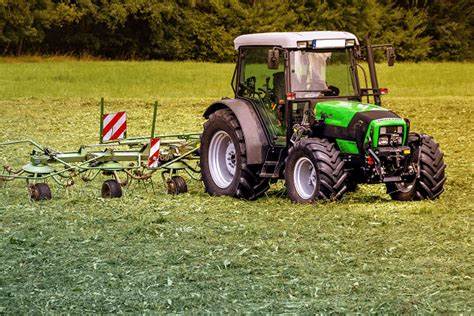
Benefits Of CNC Machining In The Agricultural Industry
Within the agricultural realm, CNC machining stands out as a favored manufacturing method, heralding enhancements and swift production of parts. Here are some key benefits:
Highly Customizable
CNC machining has revolutionized agriculture by enabling the production of customized solutions to address unique farming requirements. It empowers farmers to create tailor-made irrigation components, manufacture precise shafts, and develop specialized plows. This advanced technology offers the flexibility to produce parts that perfectly align with the specific needs of agricultural operations. As a result, farmers can achieve optimal functionality and seamlessly integrate these custom parts with their existing farming equipment.
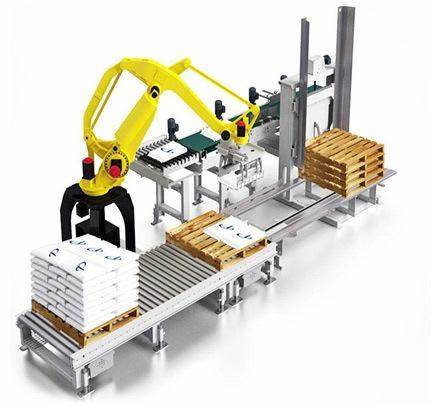
Precise Machined Parts
Through the production of parts with exact specifications, CNC technology significantly diminishes error rates and ensures the seamless and efficient functioning of agricultural machinery. Many components necessitate intricate shapes with exceptionally precise geometric tolerances. Whether it involves engine components, nozzles, or specialized gears, CNC machining can fabricate them with remarkable accuracy.
Moreover, when it comes to assembling or repairing machinery, the precise parts manufactured through CNC machining guarantee proper fitment, thereby reducing the necessity for additional modifications or adjustments.
Highly Efficient
Automated CNC procedures offer a host of advantages, including accelerated production times and continuous operation, leading to enhanced output levels that cater to planting and harvest season timelines.
Versatility
Given their capability to work with a diverse array of materials such as metals and plastics, CNC machines are ideal for crafting a multitude of precision farming components for agricultural equipment.
Flexible Rapid Prototyping
CNC machining plays a crucial role in swiftly producing prototypes for farm equipment, propelling advancements in farming technology. Its efficiency is instrumental in expediting the development of innovative tools and equipment for agriculture.
Faster Repair Times
The swift nature of CNC machining enables the rapid repair of worn-out or damaged components, effectively minimizing machine downtime and sustaining the efficiency of agricultural operations.
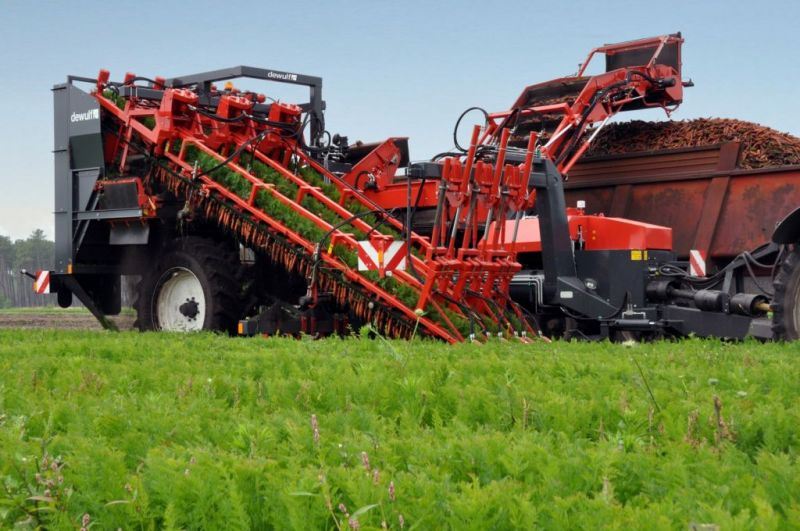
Applications And Examples Of CNC Machined Agricultural Components
Similar to its impact in the energy sector, CNC machining in agriculture has yielded numerous benefits. Below are examples of agricultural components crafted using CNC machining:
- Pulleys
- Tubing
- Sprockets
- Spray system components
- Air collectors
- Chain guides
- Gears
- HDPE flooring
Different Machining Processes For Manufacturing Agricultural Parts
CNC machining techniques have revolutionized the production of agricultural parts, emphasizing efficiency and precision. These techniques cater to the specific materials and tolerances essential for farming equipment manufacturing. Here is an overview of the diverse CNC machining techniques employed in the fabrication of parts for agricultural machinery:
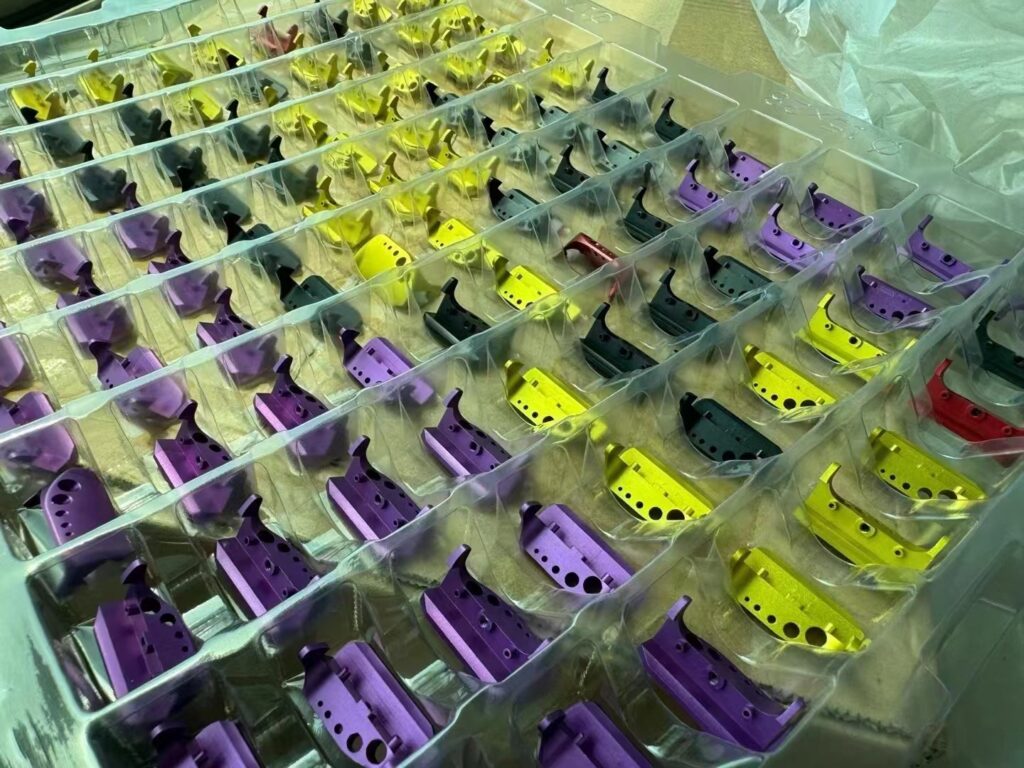
CNC Milling
CNC milling machines operate by removing material from a workpiece through rotating cutting tools. This method excels in creating intricate curves, channels, and slots with meticulous precision. It is particularly well-suited for crafting components such as gearbox housings and engine parts.
CNC Turning
CNC turning involves shaping both the exterior and interior of a material by rotating it against a cutting tool using lathes. This method is particularly effective for fabricating cylindrical parts like hubs and shafts, commonly found in agricultural equipment.
CNC Drilling
Leveraging CNC technology for precision drilling guarantees uniformly sized and accurately positioned holes in components like irrigation system parts and equipment frame structural elements. This meticulous process facilitates seamless installations, ensuring precision and consistency in agricultural machinery.
Electrical Discharge Machining (EDM)
EDM (Electrical Discharge Machining) is employed for materials that are challenging to machine through conventional methods. This highly precise technique is ideal for crafting intricate CNC parts for agricultural machinery, including complex gears and detailed nozzles.
Common Materials Used In CNC Machining For Agricultural Industry
When it comes to building reliable and efficient agricultural equipment, a wide range of materials can be utilized. Selecting the appropriate materials for CNC machining is crucial for ensuring the durability and performance of agricultural components, considering the outdoor conditions in which the machinery operates. Here are some commonly used materials in the production of precision CNC agricultural parts:
Stainless Steel
Stainless steel is renowned for its strength and corrosion resistance, making it a popular choice for agricultural components that require durability and weather resistance. It is frequently employed in the production of items like fasteners and valve components, which need to withstand outdoor conditions and remain resilient over time.
Carbon Steel
Carbon steel is utilized for structural elements and tools that demand exceptional strength, such as cultivator shanks and plow frames. Its robust nature makes it an ideal choice for agricultural components that undergo heavy-duty applications in the field.
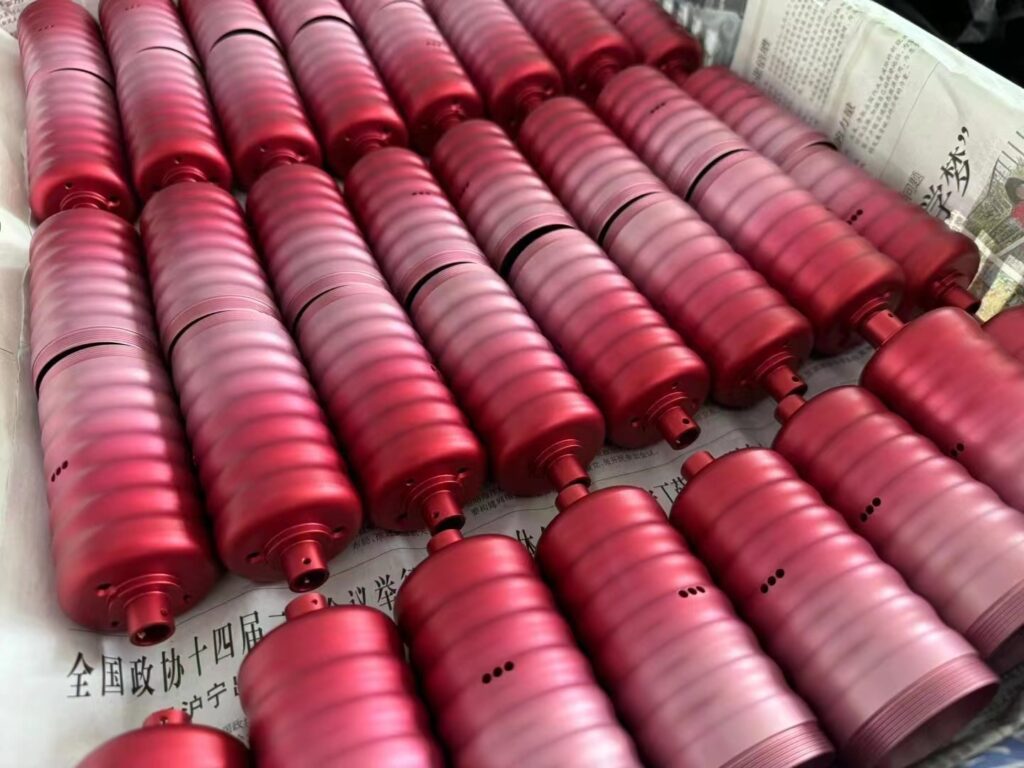
Aluminum
Aluminum, known for its lightweight properties and corrosion resistance, is a valuable material often used in the manufacturing of engine components and body panels for agricultural machinery. Its application helps reduce the overall weight of agricultural equipment, contributing to enhanced efficiency and performance in the field.
Brass
Brass is an excellent choice for fittings and connectors in fuel systems and other applications where the risk of combustion needs to be minimized. Agricultural brass machined parts are also employed in combustion chambers due to their low friction and non-sparking characteristics, ensuring safe and efficient operation in agricultural machinery.
Plastics and Composites
Certain composites and polymers offer a combination of strength, adaptability, and corrosion resistance, making them ideal for various agricultural parts such as ducts, enclosures, and housings. These materials often enhance the durability of the components and reduce maintenance requirements, resulting in more robust and long-lasting agricultural machinery.
Practical Tips For Optimizing CNC Machining For Agricultural Parts
Optimizing CNC machining processes for the manufacturing of agricultural components can lead to increased productivity, cost savings, and improved durability of parts. Here are valuable recommendations for maximizing CNC machining in agricultural production.
Choose the Right Materials
Consider evaluating and choosing CNC machining materials that are cost-effective and easily accessible for agricultural applications. These materials should also meet the necessary mechanical requirements, such as strength and corrosion resistance, to ensure the durability of components in challenging farming conditions. By selecting appropriate materials, you can minimize waste and reduce costs.
Metals like steel, aluminum, and stainless steel are commonly utilized in agricultural settings due to their corrosion resistance, which is crucial given the exposure to harsh chemicals. Aluminum, in particular, is a lightweight material with excellent machinability, making it suitable for less complex parts where weight is a significant consideration.
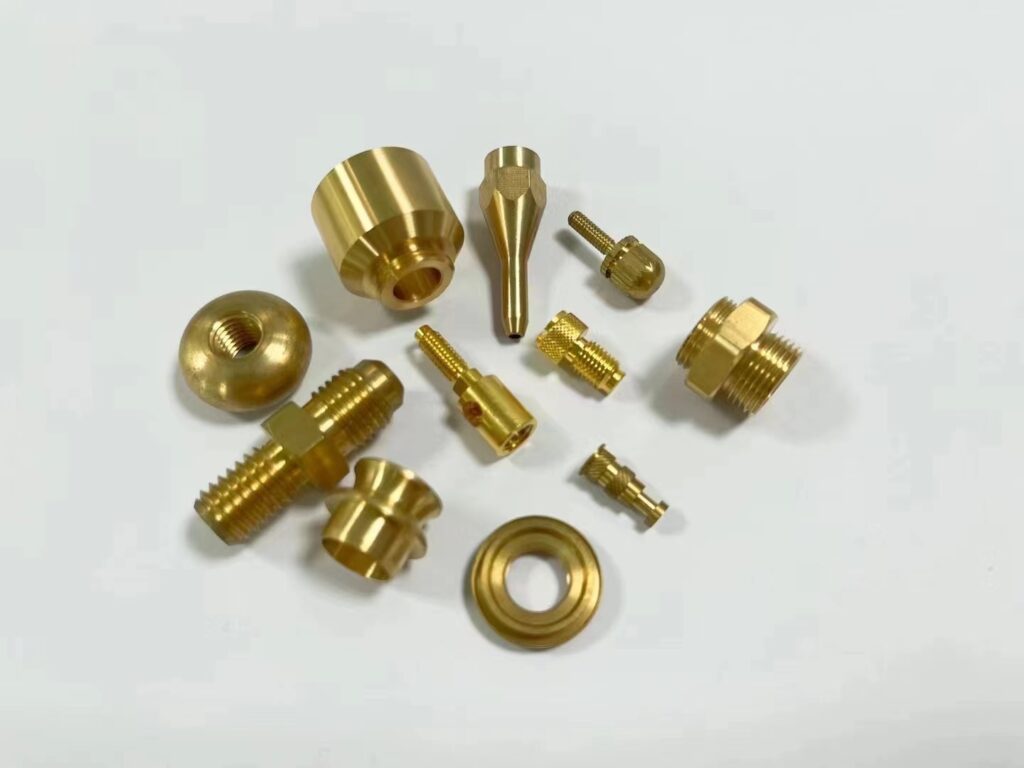
High-Quality Cutting Tools and Workholding
To enhance precision in agricultural CNC machining and reduce vibration, it is advisable to invest in sturdy work-holding methods and top-quality cutting tools. This strategic approach will lead to enhanced part accuracy and the manufacturing of high-performance agricultural machinery.
Surface Finishes
Surface finishing is a crucial post-machining stage in the manufacturing of CNC agricultural machine parts. When determining the required finish for the part, a simple finish is typically adequate for functional agricultural components, thereby optimizing production time.
Select Tight Tolerance When Only Need
High precision is associated with tight tolerances, albeit at a higher cost. It is crucial to pinpoint the exact agricultural machinery applications that demand this level of precision. While brackets and shields may not necessitate tight tolerances, bearings, custom couplings, and pistons often do to ensure proper fit and operational efficiency within an assembly.
By judiciously applying tight tolerances, significant manufacturing cost savings can be achieved without compromising functionality. Determining the necessary precision level involves assessing the ultimate function of each component.
Avoid Deep Cavities
Machining deep cavities in parts can pose challenges, consuming time and potentially escalating costs while also heightening the risk of errors. When designing parts, it is advisable to minimize the presence of deep cavities.
Exploring alternative strategies, like assembling smaller components or opting for multiple simpler parts instead of a single complex one, can streamline the manufacturing and assembly processes, making them more manageable and cost-effective.
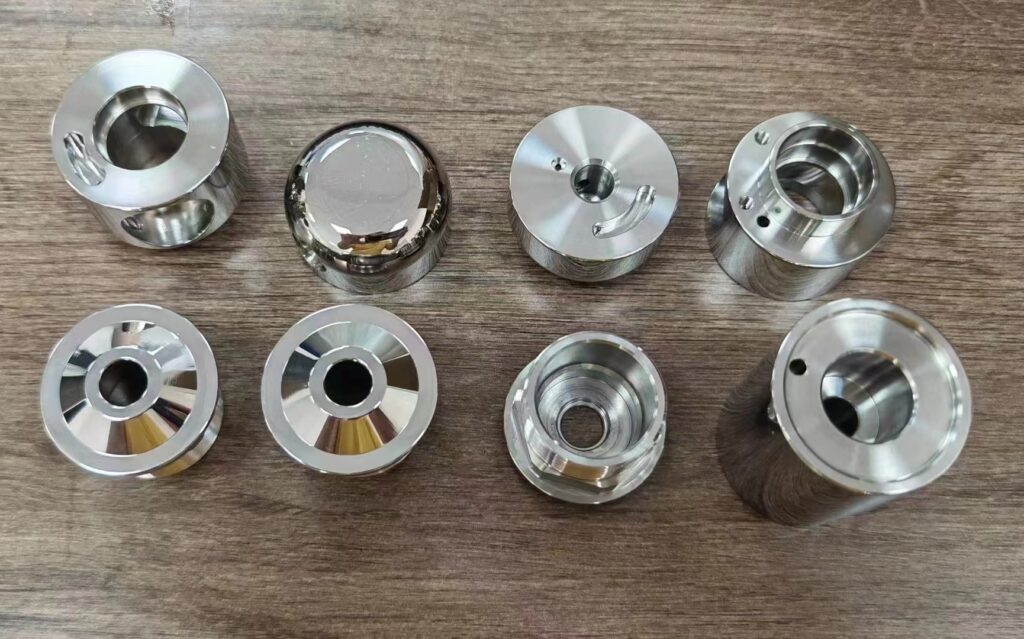
How To Choose The Right CNC Company For Your Machined Agricultural Projects?
Choosing the appropriate CNC machine shop for agricultural machined parts is crucial to ensure the precision, durability, and top-notch performance of the components. The following factors can assist you in selecting a reliable establishment for your agricultural CNC machining needs.
Extensive Knowledge of Material
Verify that the company possesses a comprehensive knowledge of the materials commonly used in agriculture and can offer sound guidance on optimal choices considering budget constraints and machining specifications. This is particularly crucial for agricultural tools, as they must maintain durability when exposed to harsh weather conditions and extensive usage.
Advanced Equipment and Technology
Ensure that the company utilizes state-of-the-art CNC equipment capable of accurately performing a variety of tasks. Advanced machinery enables the production of parts with enhanced precision and superior quality finishes.
Lead Time Speed and Flexibility
Evaluate the track record of CNC machining companies in agriculture in meeting deadlines. It is essential to partner with a company that can provide fast turnaround times without compromising quality, especially during the peak agricultural seasons.
Quality Assurance Procedure
Assess the quality control protocols of the CNC machining company. A commitment to excellence, demonstrated through certifications like ISO standards, signifies reliability in producing components that adhere to rigorous agricultural standards.
Depth of Experience in the Agricultural Industry
Look for a CNC precision machining company with a background in precision CNC machining for the agriculture sector. Professionals with experience understand the unique challenges involved and can deliver parts that are resilient enough to endure demanding farming conditions.
Ability to Accommodate Future Growth
The CNC provider should have the capacity to handle the scale of your project and accommodate future growth. This capability ensures that they can manage the seasonal demands and substantial orders typical of the agriculture industry.
Get Custom Agricultural Parts At AS Prototypes
AS Prototypes provides tailored CNC machining services designed to meet the precise needs of agricultural machined parts. We implement rigorous quality control measures to guarantee that the machined components align with our clients’ specifications. Our team of engineers offers expert guidance and machining solutions aimed at delivering cost-efficient and top-quality outcomes. Opt for AS Prototypes for reliable and efficient machining services that bolster the production and dependability of your agricultural machinery.
Conclusion
CNC machining plays a pivotal role in fabricating precise and durable components for essential machinery, significantly benefiting the agricultural industry. This technology has heightened productivity, minimized downtime, and facilitated tailored part production to meet specific farming needs.
As farming practices advance to meet the industry’s growing requirements and uphold the reliability and efficiency of agricultural operations, CNC technology will remain indispensable in driving these advancements.
FAQs
Which types of CNC machines are commonly used in the agricultural Industry?
CNC milling machines and CNC turning lathes are among the various types of CNC machines that are frequently utilized in the agricultural sector. These machines are used for the production of precision parts for agricultural machinery, including housings, shafts, gears, and structural pieces.
What are the common applications of CNC milling in agriculture?
Numerous applications for CNC milling exist in the farming and agricultural sectors. These applications encompass different aspects of the farming process, including agricultural machinery, food processing, livestock farming, and crop production.
What are the specific parts commonly manufactured using CNC machining for agriculture?
A few specific items that are frequently produced for the agricultural sector utilizing CNC machining include parts for the irrigation system, harvesting equipment, sprockets and gears for tractors, PTO (power take-off) shafts and components, and components for hydraulic systems.

